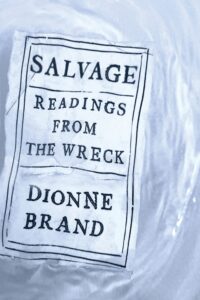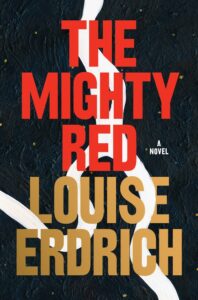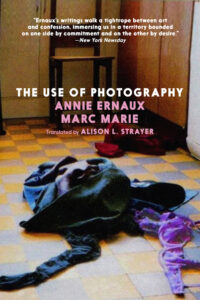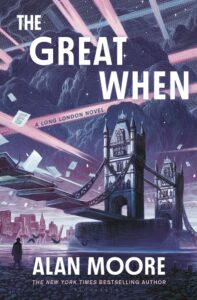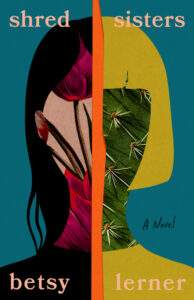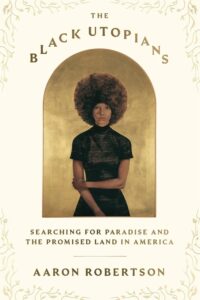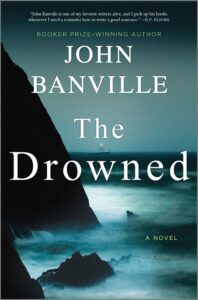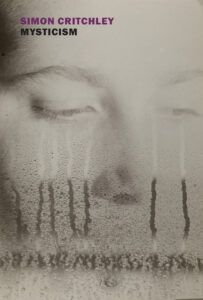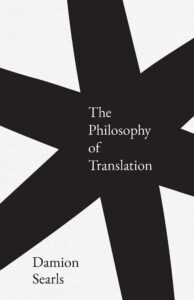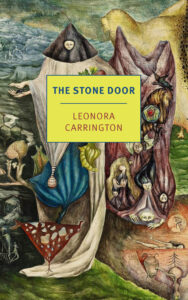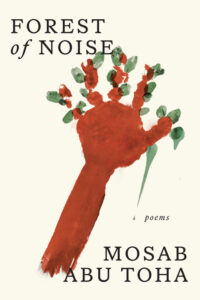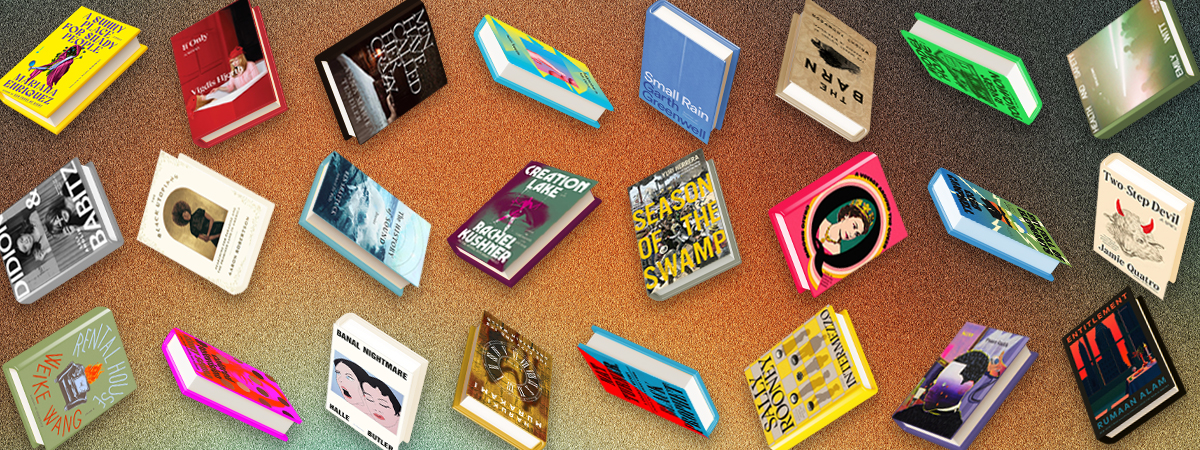
Lit Hub’s Most Anticipated Books of 2024, Part Two
193 Books to Read in the Second Half of the Year
October
Dionne Brand, Salvage: Readings from the Wreck
FSG, October 1
The poet/theorist/thinker Dionne Brand wowed me once with her 2001 book on Black diaspora, A Map to the Door of No Return. That project strains classification—it’s essay, it’s meditation, it’s theory, it’s memoir, it’s poem—and her upcoming book Salvage looks to be as ambitious. In this new collection, Brand considers the perils of “making and remaking the self” that’s been brewed in dominant narratives. She situates this exploration in a larger one, though, offering readers a capacious look at the “wreck of empire.” –BA
Louise Erdrich, The Mighty Red
Harper, October 1
A new novel from Louise Erdrich—winner of the Pulitzer Prize and the National Book Award, if you didn’t know—is always something to celebrate. Her latest, set in North Dakota in the shadow of the 2008 recession, is, like so much of her work, “a story of love, natural forces, spiritual yearnings, and the tragic impact of uncontrollable circumstances on ordinary people’s lives.” Start clearing off space on your bedside table now. –ET
Annie Ernaux and Marc Marie, tr. Alison L. Strayer, The Use of Photography
Seven Stories, October 1
Until I read Rebecca Bengal’s terrific interview with writer/curator Lou Stoppard, who, in the book Exteriors: Annie Ernaux and Photography, paired text from Annie Ernaux’s Exteriors with dozens of photos, I was unaware of Ernaux’s deep interest in photography. In The Use of Photography, first published in 2005, Ernaux and journalist Marc Marie document their affair, through text and photos, as Ernaux is undergoing cancer treatments. A must-read for lovers of words, images, and Ernaux herself. So… everyone? –JG
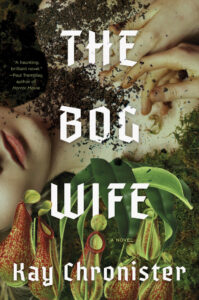
Kay Chronister, The Bog Wife
Counterpoint, October 1
I have a friend who describes her taste in books as primarily “stories about women living near bogs or falling into bogs, spiritually or literally”—and she is not the only one. Thank goodness for Kay Chronister, delivering the book that all the bog-wives need: a story about a family, a bog, and the connection between them. –DB
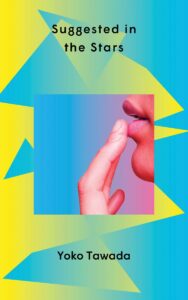
Yoko Tawada, tr. Margaret Mitsutani, Suggested in the Stars
New Directions, October 1
Scattered All Over the Earth was a surprisingly joyful book about climate change and Tawada continues the hopeful and magical adventures of Hiruko and her friends as they make their way to Copenhagen. I can’t even begin to imagine what they’ll get up to, but I know it will be a giddy delight. –DB
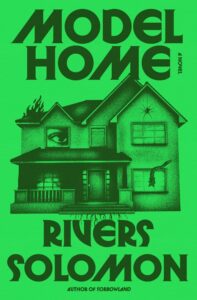
Rivers Solomon, Model Home
MCD, October 1
As previously recommended: A haunted house novel dealing with family, segregation, and racism in the American South, released on the first day of spooky season and five weeks before the election? Blurring the line between the supernatural and the all-too-human evils around us?? Rivers Solomon has their finger on the pulse of things, to be sure. I’m betting on this one to be Solomon’s breakout. –DB
Clarice Lispector, tr. Katrina Dodson, Covert Joy: Selected Stories
New Directions, October 1
Listen, I am going to continue to anticipate, and also to buy, every beautifully-designed collection of Clarice Lispector stories that New Directions deigns to publish. There are worse ways to die than under a pile of these. –ET
Alan Moore, The Great When
Bloomsbury, October 1
As previously recommended: When a fictional book out of an Arthur Machen story ends up in a used bookstore in post-WWII London, a young man’s entire sense of the universe is turned upside down. It’s a rollicking adventure, the first in an apparent series. Imagine if Neil Gaiman commissioned Kevin Barry to write a prequel to Neverwhere and gave him some acid to help get things going, and that’s just the start of it. –DB
Betsy Lerner, Shred Sisters
Grove Press, October 1
Patti Smith compared this debut novel—from the author of the memoir The Bridge Ladies—to a “souped-up pickup truck,” and while I don’t have any idea what that means, it still makes me all the more eager to read this story of sisterhood, love, and disaster. –ET
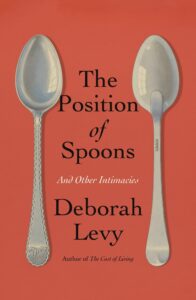
Deborah Levy, The Position of Spoons: And Other Intimacies
FSG, October 1
I’ll read Deborah Levy on just about anything, and this book specifically seems to be about, well, just about anything. Levy’s writing is often made up of observing and witnessing, depicting the small pleasures and microcosms of humanity that make up a life well lived. In The Position of Spoons, Levy offers insight and anecdotes into many subjects: ideas, people, countries, belongings, literature. Writing with lyricism and wit always, Levy takes the reader on a journey through all that has mattered most to her writing and living, the things that make up her heart and mind’s tender fixations, and offers a way for us all to meditate on the small and crucial ways we make sense of the world. –JH
Aaron Robertson, The Black Utopians
FSG, October 1
Writer, translator, and editor Robertson’s first full-length work of nonfiction is an investigation into Black Americans’ visions of utopia, from the Reconstruction era to the present day. This book is “not merely a historical recounting of collective innovation, but an urgent philosophical quest for what is sacred about the Black utopian imagination in the face of brutal constraints,” writes Adrian Shirk. “The Black Utopians unearths again and again crucial legacies of Black resistance.” Robertson is a former Lit Hub editor, so I happen to know first-hand how brilliant he is—can’t wait to read this book. –ET
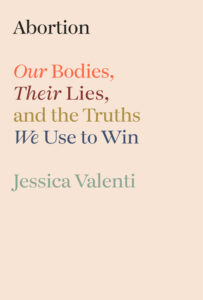
Jessica Valenti, Abortion: Our Bodies, Their Lies, and the Truths We Use to Win
Crown, October 1
Conservative America’s decades-long campaign to overturn Roe v. Wade always seemed more like fantasy than a possible reality (even to them) until suddenly it wasn’t. So what happens now? In her latest, which is being billed as “a handbook for the overwhelming majority of Americans who support abortion rights,” Jessica Valenti reveals some of the darker strategies employed by the radical Right to take away a woman’s right to choose, while also outlining the many ways in which pro-choice Americans can restore to women their fundamental human rights. –JD
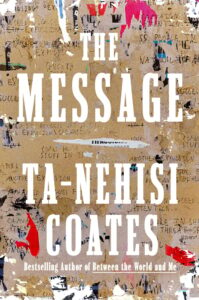
Ta-Nehisi Coates, The Message
One World, October 1
Apparently, Ta-Nehisi Coates, MacArthur Fellow and bestselling author of Between the World and Me, has been off trying to write a book about writing. Instead, he has come back with this: three “intertwining essays” that take us from Dakar, Senegal, to Columbia, South Caroline, to Palestine and Jerusalem, which all come back to that Coates has identified as our “urgent need to untangle ourselves from the destructive nationalist myths that shape our world—and our own souls—and embrace the liberating power of even the most difficult truths.” –ET
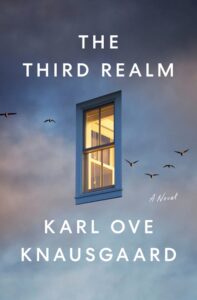
Karl Ove Knausgaard, tr. Martin Aitken, The Third Realm
Penguin Press, October 1
Hive, we ride again to Norway.
In this third visit to a sky first seen in his 2020 novel, The Morning Star, Knausgaard traces the fall-out of a celestial event. The Third Realm is being framed as a kaleidoscopic, multi-character tour de force, complete with black metal band intrigue, murder mysteries, and a literal bank of dreams. If this book is anything like its two predecessors, I’d guess we can expect some profound meditations on the nature of life interspersed among the action.
I continue to appreciate the polyphonic experiments coming lately from Knausgaard, who made his name burrowing inward. Turns out the telescope is just as exciting as the microscope. –BA
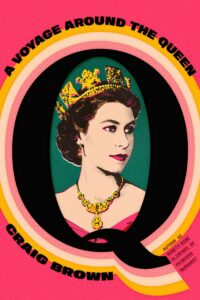
Craig Brown, Q: A Voyage Around the Queen
FSG, October 1
Brown, the author of 2018’s Ninety-Nine Glimpses of Princess Margaret, winner of the James Tait Black Memorial Prize, now takes on Queen Elizabeth herself with his trademark aggregation and wit. Should be fun. –ET
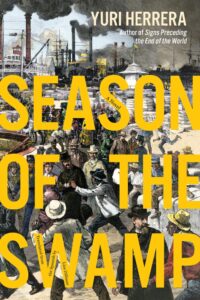
Yuri Herrera, tr. Lisa Dillman, Season of the Swamp
Graywolf, October 1
Speculative history fans, get hyped. I bring tidings from a modern master. Season of the Swamp follows Benito Juárez, the first (and er, only…) indigenous president of Mexico. But in this novel, we meet the future head of state as a young migrant to 1850s New Orleans. After being expelled from his homeland, Juárez is thrown into a community of peripatetic fellow outcasts working odd jobs in their adopted city. The big easy, that singular melting pot, is the other main character.
The novel traces Juárez and his cohort over a year in New Orleans, as they plot a revolutionary return to Mexico. And while the city’s romantic rhythms entrance our hero, he also gets to observe America’s founding contradictions up close. Told in Herrera’s typically sparkling, form-exploding language, this one is screaming ‘modern epic.’ –BA

Suzumi Suzuki, tr. Allison Markin Powell, Gifted
Transit Books, October 1
Suzumi Suzuki’s English-language debut—which was shortlisted for Japans prestigious Akutagawa Prize—tells the story of a young sex-worker, thrust into the role of caregiver for her abusive mother, splitting her life in half. It also carries the most savage blurb I have ever read, from Yōko Ogawa, who writes: “Demonstrates that death is the only way forward. Oozes with maternal cruelty.” Damn. –ET
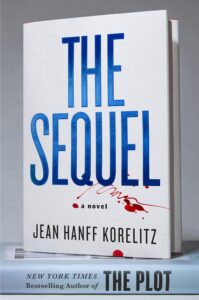
Jean Hanff Korelitz, The Sequel
Celadon, October 1
Fans of Korelitz’s literary thriller The Plot will (manuscript theft! identity theft! murder most foul! soup!) get excited for the sequel: The Sequel, in which a certain author’s widow decides to write her own book—and discovers that she’s not the only one who knows a few secrets after all. Fun. –ET
John Banville, The Drowned
Hanover Square Press, October 1
Bestselling, Booker Prize-winning Banville is Back (sorry, couldn’t help myself) with another Strafford and Quirke novel, this one a “richly atmospheric” mystery set in a small town on the Irish coast, where a woman may or may not have thrown herself into the sea. Never gets old. –ET
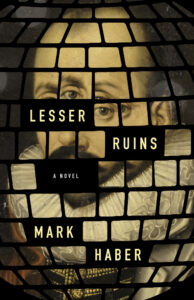
Mark Haber, Lesser Ruins
Coffee House Press, October 8
This is a novel in which the narrator’s primary objective—to finally write a book length essay on Michel de Montaigne—doesn’t come close to being completed, at least not in the pages provided. Lesser Ruins is a near perfect document of what it is to procrastinate, spun out in Haber’s signature absurdist, looping, intellectually ecstatic style. –ET
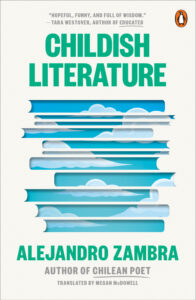
Alejandro Zambra, Childish Literature
Penguin Books, October 8
The past years have brought a great slew of new motherhood books, but there hasn’t exactly been an equal and opposite addition of fatherhood literature: Alejandro Zambra’s new book, Childish Literature, is a welcome contribution to the growing parenting oeuvre. A smattering of different mediums, stories, essays, and poems all make up this work, all inspired and influenced by the state of fatherhood. A new role such as this one can make a person recalibrate and reframe their entire life, and Zambra illustrates the impact becoming a father has had on his outlook. These warm and caring pieces depict his meditations on time and mortality and tenderness, and allow the reader to witness the richness of ordinary life, the treasures found therein. –JH
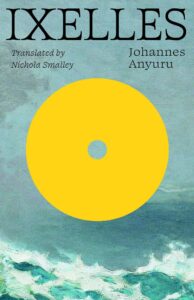
Johannes Anyuru, tr. Nichola Smalley, Ixelles
Two Lines Press, October 8
Any novel that gets comped to both Jeff VanderMeer and Colson Whitehead is going to be an auto-pick-up for me. This one follows a woman who works “creating elaborate fictions to shape public opinion” as she returns to her old home—where she finds a CD with the voice of someone claiming to be her dead husband. It’s giving slipstream strangeness and I’m ready for it. –DB
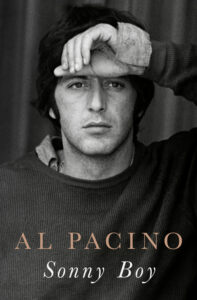
Al Pacino, Sonny Boy
Penguin Press, October 8
Arguably the greatest (and certainly the shoutiest) actor this country has ever produced has, at the tender age of 84, penned his first memoir. Sonny Boy charts the Oscar-, Tony-, and Emmy-winning New Yorker’s journey from the South Bronx to Hollywood, exploring his most iconic roles and meaningful relationships, as well as his deep, sustaining love for the craft of acting. Personally, I’m hoping for some extended analyses of Dog Day Afternoon (“Attica! Attica!”), Sea of Love (“Come the wet-ass hour, I’m everybody’s daddy!”), and, of course, The Devil’s Advocate (“He’s an absentee landlord!”). –DS
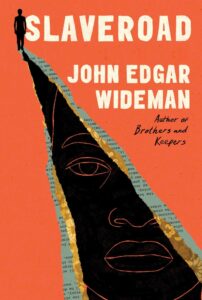
John Edgar Wideman, Slaveroad
Scribner, October 8
A genre-bending investigation into the “slaveroad”—a term which “begins with the Atlantic Ocean, across which enslaved Africans were carried, but…comes to encompass the journeys and experiences of Black Americans since then and the many insidious ways that slavery separates, wounds, and persists” from literary giant and MacArthur Fellow John Edgar Wideman. Mixing history, memoir, and fiction, this will no doubt be an essential 2024 read. –ET
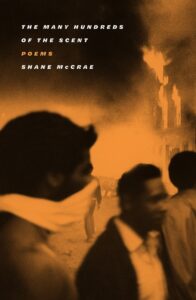
Shane McCrae, The Many Hundreds of the Scent
FSG, October 8
Blending the grandly mythic (the fury of Achilles, the sorrow of Penelope) with the personally tragic (a heartbreaking lyric snapshot of being kidnapped by his white grandparents), poet Shane McCrae has found a deeper register of lyric grace with this new collection, and we are all the luckier for it. A contemporary poet everyone should be reading. –JD
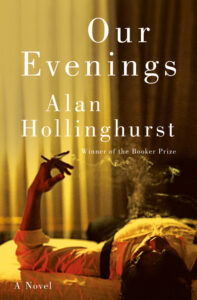
Alan Hollinghurst, Our Evenings
Random House, October 8
The latest novel from the beloved, Booker Prize-winning author of The Line of Beauty and The Swimming Pool Library is a sweeping story of one man’s life—first a working-class, brown-skinned teenager at a fancy boarding school on a scholarship, then a young man exploring his sexuality, then an actor, then a married man in London—and the family, not his own who gave him so much and also would threaten to take it away. All of this being very likely, given the source, to destroy you by the end (in the best way, of course). –ET
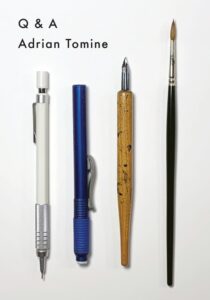
Adrian Tomine, Q&A
Drawn and Quarterly, October 8
I first met Tomine’s work through The New Yorker, where he’s a resident cartoonist. His graphic shorts look closely at the day to day indignities entailed by modern living, and I find him to be a profound and truthful bard of alienation and ennui. In this new collection, he spills trade secrets about his practice, process, and preferred tools as an artist. Readers can expect panel drafts, musings, and some personal history, rendered in Tomine’s “meticulous brand of madness.” –BA
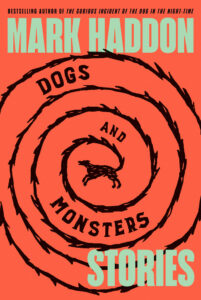
Mark Haddon, Dogs and Monsters: Stories
Doubleday, October 15
From the author of The Curious Incident of the Dog in the Nighttime and The Porpoise, a collection of eight short stories informed by Greek myths—from Tithonus to the minotaur—and refracted through our contemporary lens. “Haddon’s tales cover a vast range,” the publisher tells us, “from the mythic to the domestic, from ancient Greece to the present day, from stories about love to stories about cruelty, from battlefields to bed and breakfasts, from dogs in space to doors between worlds, all of them bound together by a profound sympathy and an understanding of how human beings act and think and feel when pushed to the very edge.” –ET
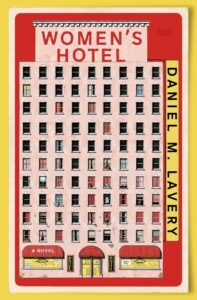
Daniel M. Lavery, Women’s Hotel
HarperVia, October 15
A novel that describes the last days of The Beidermeier (akin to the Barbizon, the famed hotel of every unmarried woman who came to New York) promises to be full of big personalities, from party girls to elevator operators. Lavery’s writing is sharp and endlessly funny, this is definitely on my TBR pile. –EF
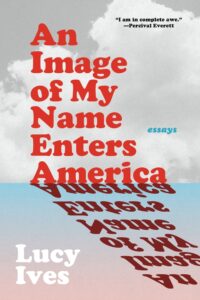
Lucy Ives, An Image of My Name Enters America: Essays
Graywolf, October 15
It is rare for a mind as mercurial and voracious as Lucy Ives’s to possess such obvious lexical facility in guiding readers from one thought to the next, but here we are: Ives is one of our brilliant weirdos and must be protected at all costs. In her latest collection of five essays, the mind in question rappels (darts? gallops? gavottes?) from one subject to the next, pulling in stray thoughts with accomplished ease: My Little Pony? The settlement of the American West? Assyrian genocide? They’re all fair game to a great essayist like Ives. –JD
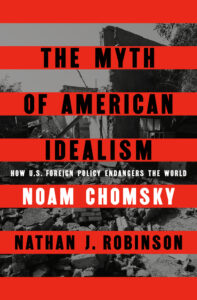
Noam Chomsky and Nathan J. Robinson, The Myth of American Idealism
Penguin Press, October 15
Recent rumors of Noam Chomsky’s death were, indeed, exaggerated, but this is likely to be his last book (co-authored with Nathan J. Robinson)—and it couldn’t be more timely. An outspoken critic of American empire for most of his life, here Chomsky zeroes in on the myths underlying that imperial expansion, namely the idea that the spread of democracy (no matter the methods) is an unalloyed good. The problem, of course, is that powerful men in small rooms who think themselves both wise and just tend to do the most damage. –JD
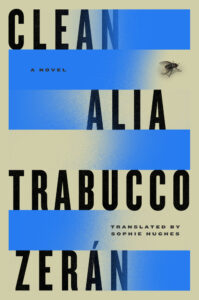
Alia Trabucco Zeran, Clean
Riverhead, October 15
A housemaid in prison narrates her tale of woe as a confession in this visceral exploration of class, privilege, and humanity. It is clear from the beginning that something terrible has happened to her employers’ young daughter, but we must wait for a complex story to unravel before learning exactly the nature of the tragedy. Heartbreaking, furious, and a modern masterpiece! –MO
Simon Critchley, Mysticism
NYRB, October 15
“Why mysticism?” asks Critchley at the beginning of this volume. He borrows a definition for the term from Evelyn Underhill, who calls it “experience in its intense form,” and asks the reader, “wouldn’t you like to have a taste of this intensity? Wouldn’t you like to be lifted up and out of yourself into a sheer feeling of aliveness, both your life and those of the creatures that surround you?” Well, sure, and if I get there by means of Critchley’s investigation into Annie Dillard, Anne Carson, Nick Cave, and T.S. Eliot, so much the better. –ET
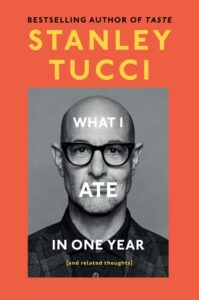
Stanley Tucci, What I Ate in One Year (And Related Thoughts)
Gallery Books, October 15
Stanley Tucci loves food. The actor has in recent years made himself over as an approachable and sophisticated gourmand, a culinary leading man—though I’m still working on forgiving him for shaking, and not stirring, his Negronis. Tucci’s What I Ate In One Year is a diary project, using both good and bad meals as the jumping-off point to examine food and the ways it can connect us. Dining with friends and strangers, in good times and bad, Tucci recalls not just the memorable meals, but the small and less flashy ones too. What I Ate In One Year is a buffet of the moments that are possible over a shared plate. –JF
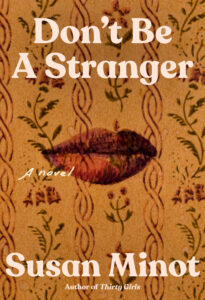
Susan Minot, Don’t Be a Stranger
Knopf, October 15
The kids might not be having sex anymore (or so I hear), but the moms still are—including Ivy Cooper, the 52-year-old at the center of Susan Minot’s latest book, who falls into an all-consuming affair with a bad boy musician in his 30s. Detractors of Anne Hathaway and gorgeous prose need not apply, but for the rest of us, a treat. –ET
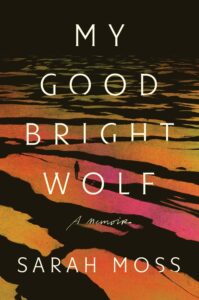
Sarah Moss, My Good Bright Wolf
FSG, October 22
One of the leading chroniclers of women-in-bogs (see: The Bog Wife earlier) delivers a memoir about her relationship to food and her body and the ways that our society prioritizes certain narratives and ignores others about both, particularly when it comes to women. –DB
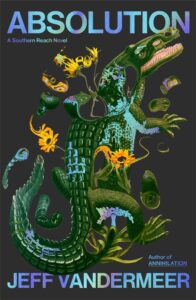
Jeff VanderMeer, Absolution
FSG, October 22
Jeff VanderMeer’s Southern Reach Trilogy was a bona-fide sensation and now he’s headed back to Area X with a fourth novel that is both prequel and sidequel and something else besides. Any excuse to go back to Area X is a welcome one (if, indeed, any of us ever actually left…) and the snippets VanderMeer has been sharing across social media have whipped up quite an appetite for this new book. It makes me so happy that so many people are going to read such a spectacularly strange novel. –DB
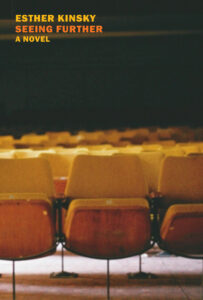
Esther Kinsky, tr. Caroline Schmidt, Seeing Further
NYRB, October 22
The new book by Esther Kinsky, who is known for her lyrical prose, follows a woman who discovers a boarded-up cinema in a small town in Hungary and takes on the job of revitalizing it. Kinsky’s protagonist is compelled to resurrect not just a building, but the town’s collective cinematic experience, “beautiful and undecayed like Snow White, in some people’s thoughts and memories.” The book is an ode to cinema and the communal experiences that the movies make possible, and like her previous novels, Seeing Further promises to be beautiful and ruminative. Not to be missed if you, like me, are enchanted by movie theaters as vital sites of community. –JF
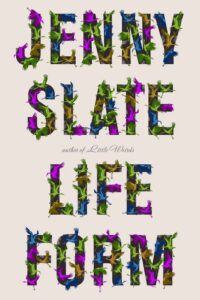
Jenny Slate, Life Form
Little, Brown, October 22
Following on the heels of her special from earlier this year, Jenny Slate is releasing a book of sprightly and comedic (of course) essays in October. Motherhood is one of the many topics discussed in her special, Seasoned Professional: what it is to care for a baby, how insane childbirth is, all the changes and surprises that come from matrescence. Life Form centers and builds around this theme, offering questions and advice and humor and her experience with motherhood, all written in Slate’s trademark pithy and conversational voice. –JH
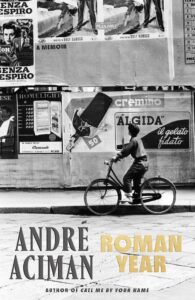
André Aciman, Roman Year: A Memoir
FSG, October 22
André Aciman, author of Call Me By Your Name, is an excellent prose stylist—especially when he’s describing place (his ability to evoke Italy has already been well-proven), and a compelling literary thinker. These qualities bode quite well for this memoir, which covers the time he spent in Rome as an adolescent, having fled Egypt with his family. –ET
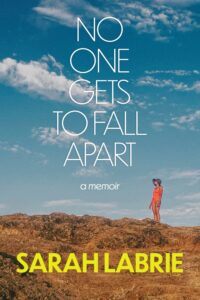
Sarah Labrie, No One Gets to Fall Apart: A Memoir
Harper, October 22
When Sarah Labrie’s mother suddenly experienced a mental break and was diagnosed with schizophrenia, it both opened a chasm of questions as well as provided answers for a tumultuous and volatile childhood she’d never fully understood. With the clarity of that diagnosis, Labrie looks back on the lineage of her ancestors and their own struggles with mental health, and its inexorable ties to racism, to the weight of their shared history of enslavement. Along with her ancestors, she traces her own experiences with depression and the darknesses that can threaten to destroy a mind. Using her mother’s break as a launching point, readers will be treated to a meandering and wise discussion of the past’s coloring of our futures, and how to carve the best path forward even through pain and rupture. –JH

Nicolas Fox Weber, Mondrian: His Life, His Art, and the Quest of the Absolute
Knopf, October 29
Piet Mondrian’s abstract, pure color, geometric paintings are mesmerizing, and probably among the most maligned by the “what’s the big deal about modern art, my kid could do that” set of annoying dads at the museum. In this new biography, historian Nicholas Fox Weber follows Mondrian from his strict Protestant upbringing in the Netherlands to the dizzying creative heights of 1920s Paris, where Mondrian forged his radical style alongside Picasso, Seurat, and Cezanne, all while navigating two world wars and their tectonic shifts in politics, culture, and society. Weber has spent a career writing about the interwar art world, including books on the Bauhaus, Balthus, and the art patrons who brought the avant-garde to America, and his writing on Mondrian promises to be a portrait of not just an artist, but also of the influence his style had on art, architecture, and design. –JF
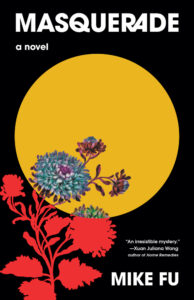
Mike Fu, Masquerade
Tin House, October 29
A newly single guy is house-sitting for a friend when he comes across an old novel written by someone with his name. Does reality begin to blur a bit as a result? All signs point to yes—and I’m excited for this magically realist novel of Millennial friendship and art. –DB
Damion Searls, The Philosophy of Translation
Yale University Press, October 29
I find translation endlessly fascinating—I mean, reading and writing at the same time, is this hell or the holy grail?—so I’m very much looking forward to hearing what Searls, one of our best working translators, has to say about it in this “fresh, approachable, and convincing account” of the theory and practice of the craft. –ET
Leonora Carrington, The Stone Door
NYRB, October 29
Long out of print, Leonora Carrington’s second novel is being brought back to the masses by the fine folks at NYRB—and while the synopsis is sure to bend your noggin, full as it is of mad kings and puzzle boxes and surrealist imagery, that’s exactly what we go to Carrington’s art (in any of its forms) for. –DB
Mosab Abu Toha, Forest of Noise
Knopf, October 29
Acclaimed poet, scholar, and librarian Mosab Abu Toha (Things You May Find Hidden in My Ear) was barely thirty years old when Israeli bombardment forced him and his young family to flee for their lives in November of last year. As the bombs rained down on his home and the library he built (and rebuilt); as he was kidnapped, beaten, interrogated, and stripped of his possessions by the IDF; as he finally got his wife and children across the border into Egypt, Abu Toha continued to write poetry. Those poems—about life in Gaza under siege, including odes to family, elegies to those killed, lyrics to the moon, and “remembrances of a life lived fully there”—make up this astonishing collection, which has already received rapturous praise from Ocean Vuong, Ada Limón, Terrance Hayes, llya Kaminsky, and Naomi Shihab Nye. –DS
Emily Temple
Emily Temple is the managing editor at Lit Hub. Her first novel, The Lightness, was published by William Morrow/HarperCollins in June 2020. You can buy it here.









